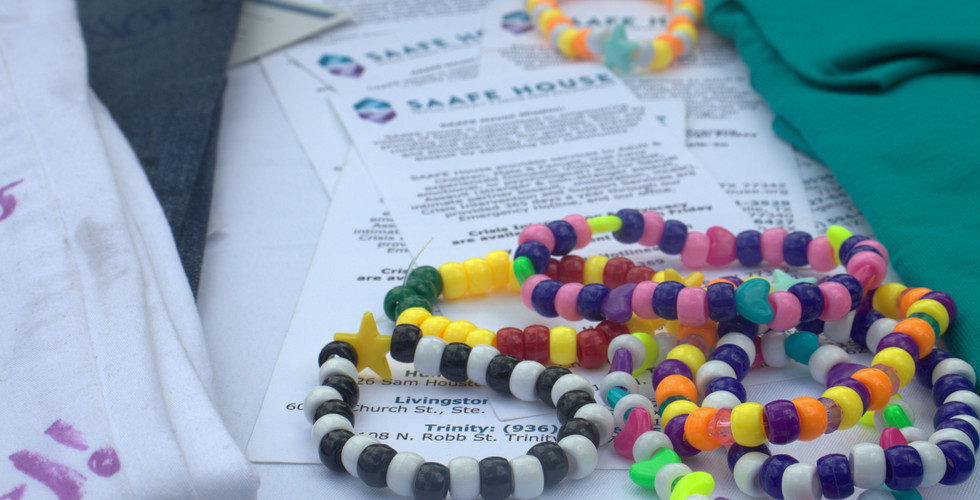Domestic Violence Awareness Month: Advocacy and Personal Reflection
- Taleigha
- Oct 31, 2024
- 3 min read
Updated: Dec 4, 2024
Photo credit: G M
October is Domestic Violence Awareness Month, a time dedicated to raising awareness about the pervasive issue of domestic violence and supporting survivors. As a mental health advocate and survivor, myself, this month holds deep significance. It's an opportunity to amplify the voices of those affected by domestic violence and to remind others that help is available, and no one should suffer in silence.
Domestic violence is not just physical—it can also be emotional, psychological, financial, and sexual. The impact it has on survivors can be long-lasting, often leading to mental health challenges such as anxiety, depression, and PTSD. Yet, the stigma around discussing this topic still prevails. Many individuals suffer in silence due to fear, shame, or societal pressures that make them feel isolated or misunderstood.
In my advocacy work, I focus on bringing attention to the mental health implications of domestic violence. As someone who grew up facing mental health challenges in an environment lacking support, I understand how vital it is for survivors to have access to mental health resources. Mental health support can play a crucial role in helping survivors rebuild their lives, develop coping mechanisms, and eventually heal from the trauma they have experienced.

Photo credit: Taleigha Harrell
Why Domestic Violence Awareness Matters
According to the National Coalition Against Domestic Violence (NCADV), nearly 20 people per minute are physically abused by an intimate partner in the United States. This staggering statistic shows the urgent need for continued education and advocacy around this issue. Domestic violence is not just a personal problem; it's a public health crisis. The effects ripple out to families, communities, and society as a whole.
Raising awareness during this month involves more than just wearing purple ribbons. It's about having tough conversations, educating others about warning signs, and understanding that leaving an abusive situation is incredibly complex. Many survivors face additional challenges like financial dependence, threats to safety, and a lack of supportive networks.
My Journey as an Advocate
As a survivor, I believe in the power of community and healing. I have dedicated myself to creating spaces where people, particularly young Black women like me, can speak about their mental health struggles without fear of judgment. Growing up in a city with limited resources for mental health or domestic violence survivors, I understand firsthand the importance of visibility and advocacy.
By sharing my experiences and raising awareness about the mental health challenges connected to domestic violence, I hope to encourage others to seek help and support one another.
Domestic Violence Awareness Month gives us the platform to promote vital resources and support systems. I encourage those in need to reach out to local organizations, national hotlines, and trusted individuals who can offer guidance. Healing from domestic violence and reclaiming one's mental health is a long journey, but it is one that no survivor should have to face alone.
I have been actively advocating for the cause throughout college through various school events and organizations. Sam Houston State University has hosted numerous events and activities advocating against sexual assault, harassment, and domestic violence. I am so glad that I was able to be a part of such a grand movement such as "National Denim Day," "Steal for Teal," "Sexual Assault Awareness Month," and so much more. I consistently used my platform as a multi-platform journalist to my advantage by bringing attention to this issue! I used actual images taken at these events for both classes and the newscast at SHSU. I am so proud of myself for using the resources the school provided to focus on mental health advocacy.

Photo credit: Taleigha Harrell
Throughout Domestic Violence Awareness Month, we must continue to break the silence surrounding domestic violence and create spaces of support and empathy for survivors. As we advocate for change, let us remember that healing is possible, and everyone deserves to live a life free of abuse.
(Taleigha Harrell/Sam Houston State University/2024)
For those reading this, I encourage you to learn more about how you can help—whether it's by educating yourself, supporting a loved one, or advocating for better resources in your community. Together, we can make a difference in the fight against domestic violence.





















Comments